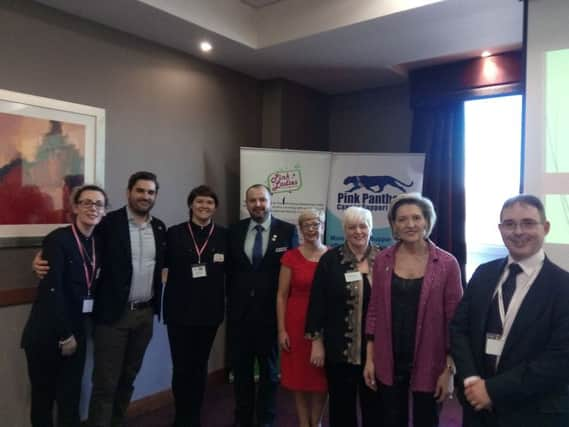Cancer services access discrepancies raised


Francesco Florindi, Head of EU Affairs with the European Cancer Patient Coalition, an organisation collating information on access to treatment and services across Europe, was speaking in Derry.
Mr. Florindi, who is based in Brussels, was invited to be keynote speaker at the ‘Pink Ladies’ World Cancer Day event at the City Hotel recently, after they met with him in Brussels some months ago.
Advertisement
Hide AdAdvertisement
Hide AdMr. Florindi said the discrepancies they have uncovered in newly published research were “astonishing.”
In relation to one particular drug for breast cancer, it took seven to 12 years from it being authorised for use across the world to some parts of Europe approving it.
“This is unacceptable,” he said. “This is an essential drug, it is really saving people’s lives, and this is just one example.
“We have many other examples not only of drugs, but for radiotherapy access, quality therapy, complicated surgeries. There is very unequal access across Europe and within European countries.”
Advertisement
Hide AdAdvertisement
Hide AdMr Florindi said forthcoming positive developments included a new European Reference Networks programme, which involves linking patients and regional health teams with specialists across Europe via tele-medicine at virtual hospitals. Referring to Brexit he said: “I hope that the European Commission will find a way to ensure citizens from the UK will enjoy this kind of service.”
He added that there were fears that Brexit could break up research and services for those that need it the most, particularly people with rare cancer.
“It’s unfeasible for Northern Ireland, England or Scotland to independently put together enough expertise to cure all rare cancer patients. One -fifth of all cancer patients are affected by a rare cancer.
“I’m worried this could hamper access to the best care for these patients.”
Advertisement
Hide AdAdvertisement
Hide AdMr Florindi’s organisation have drawn up report with recommendations for all countries experiencing different issues in relation to accessing drugs and other treatments, and calling for more joined up thinking across Europe.